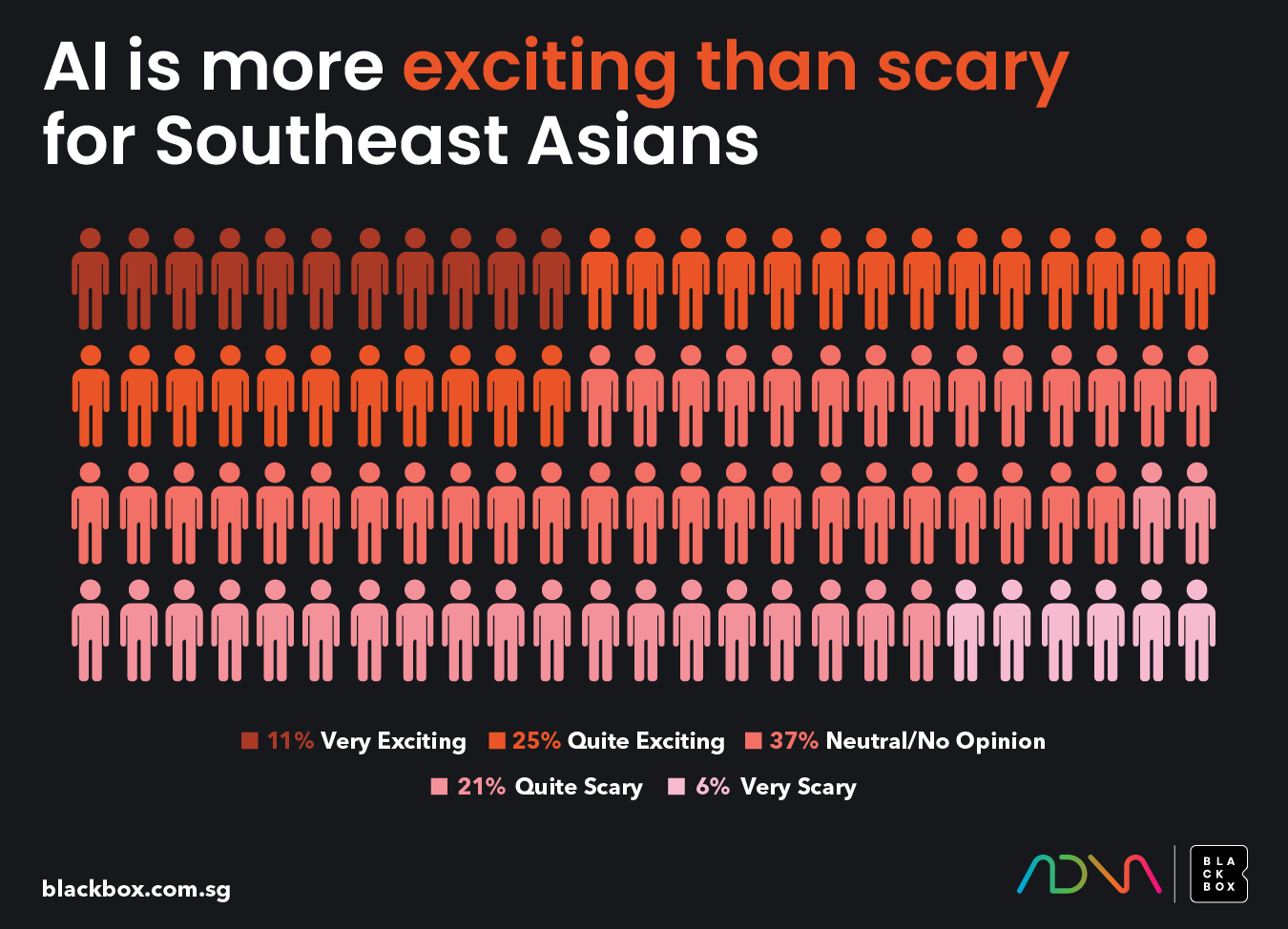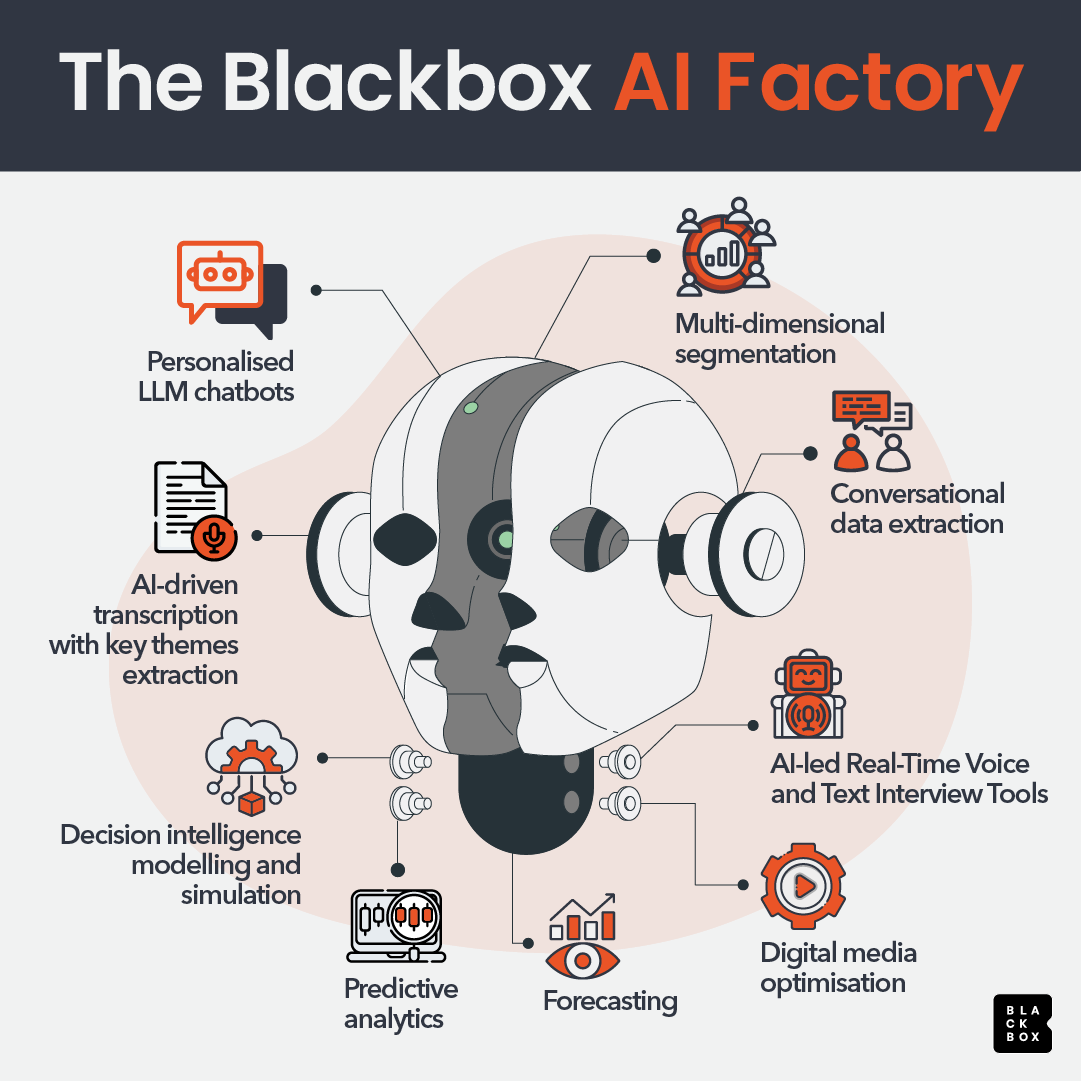Generative AI: Excitement and Uncertainty Collide in a Landscape of Challenges
Generative AI (GenAI) continues to dominate tech headlines, and for good reason. OpenAI’s ChatGPT – the most successful of the GenAI standard-bearers – amassed more than 100 million users within 8 weeks of its launch in November 2022, setting a record for the fastest growing consumer app in history. But has unprecedented consumer demand been met with the same pace of evolution within the business landscape? Is GenAI being perceived by enterprises as a great opportunity, or a threat? And have they been able to effectively leverage AI in their operations?
There is no shortage of coverage of the GenAI revolution, Deloitte’s “State of Generative AI in the Enterprise” Q1 report (Jan 2024), with insights from 2,800 AI-savvy business and tech leaders, caught our attention and reveals a complex picture within the business environment. Their report speaks of a business community that is excited and confident about AI – practically all agree that it is going to be transformative in the near-term future – but for now, a degree of scepticism lingers on its immediate impact, concerns over trust and governance persist, and AI usage is patchy and tends to be concentrated on efficiency and cost-saving rather than innovation and growth.
Enterprises' Divergent Sentiments on GenAI and Current Applications
While Deloitte found that excitement (62%) and fascination (46%) prevail as the predominant sentiments among enterprises about GenAI, a cautious undercurrent of uncertainty (30%) flows beneath as well. This intrigue speaks to the novelty of the technology, as most are still getting to grasp with the potential of its capabilities. These mixed emotions correlate with one of Blackbox’s 2023 ASEANScan studies, which surveyed 9,000 respondents from Southeast Asia and found that while 36% of respondents were excited about AI, a higher percentage (37%) were ambivalent about it and 27% expressed concern.
Nevertheless, a prediction echoes: GenAI is poised to radically transform the future, with 79% anticipating significant impact in their industry and organization within the next three years. Over 9 in 10 organizations (91%) are also banking on GenAI to improve their productivity. Despite the excitement, challenges lie ahead. Organizations prioritize tactical benefits like efficiency (56%) and cost reduction (35%), often leaning heavily on readily available solutions with integrated GenAI (71%). This tactical focus overshadows strategic goals like innovation and growth, which only 29% actively pursue.
In exploring how enterprises are currently leveraging AI, it is evident that its impact spans various sectors, offering a multitude of benefits. The widespread adoption of AI technologies has led to notable improvements in efficiency, decision-making processes, and overall productivity. Many organizations are reaping the rewards of streamlined operations, enhanced customer experiences, and the ability to extract valuable insights from vast datasets.
Despite the across-the-board benefits, certain sectors have emerged as particularly mature in their utilization of AI. Industries such as finance, healthcare, and manufacturing stand out, where AI applications range from algorithmic trading and personalized medicine to predictive maintenance. These sectors have demonstrated that AI is not just a future prospect but a current reality, driving tangible outcomes.
In essence, AI has already had a significant impact in many sectors and organizations, even if true transformation is still just over the horizon. Some challenges and concerns will first need to be addressed before many enterprises start seeing AI through the lens of innovation rather than merely efficiency. The ongoing successes across sectors, however, provide a glimpse into the immense potential awaiting those who navigate the challenges to unlock AI's transformative capabilities.
There Is No Automating AI’s Challenges!
There is a catch to this AI-powered utopia. Talent and governance concerns cast a long shadow. As per the Deloitte Survey, only 22% feel fully prepared to handle talent-related challenges, while 41% readily admit they're ill-equipped for governance and risk issues. This highlights the pressing need for increased employee education (currently a mere 47% are doing so) and reskilling initiatives. In fact, in our own survey when we asked about the impact of AI on society in the next decade, the most prevalent sentiment (21%) expressed was that individuals would need to undergo retraining in order to secure employment in this changing job market. Moreover, in a separate survey on careers, we found that “changing nature of work due to AI” was considered among the top two factors making career planning difficult today.
This skills gap and the absence of robust governance frameworks threaten to derail the AI revolution before it even reaches its peak altitude. Moreover, the Deloitte survey also revealed that a significant 49% hold the belief that the ascent of GenAI tools and applications will diminish the overall trust in both national and global institutions. It will be interesting to monitor if and how this expectation materialises; research we conducted in 2023 shows that the question of trust is a pertinent one across Southeast Asia, where people trust tech companies and the government more than other institutions when it comes to using AI ethically. Similarly, when we looked at the issue of digital trust in our SensingSG community tracker, 36% of Singaporeans fear that AI will make their online data more at risk, versus only 22% who believe AI will make their data less at risk, demonstrating that trust in AI still has a long way to go.
AI at Blackbox: A Factory of Innovation
At Blackbox, we have long recognised that AI is going to be at the heart of transformation in the market research sector and we have been leveraging AI and advanced analytics to stay ahead of the innovation curve. Our team of experts in AI and advanced analytics consistently develops cutting-edge, AI-powered products and solutions that not only enhance the depth and speed of insights, but also boost efficiency and accelerate delivery times. Through rigorous testing in live, high-impact projects, our proven solutions have delivered tangible results. Notable among our offerings are personalized LLM chatbots, AI-driven transcription with key themes extraction, decision intelligence modelling and simulation, predictive analytics, forecasting, digital media optimization, conversational data extraction, and multi-dimensional segmentation.
To highlight just three of many of our proprietary, custom-made AI tools:
Social Analyser: Our AI-powered modeling tool enhances digital advertising strategies, driving brand equity and growth efficiently. Using AI and machine learning, it enables clients and media buyers to optimize marketing efforts in the competitive digital landscape, ensuring greater ROI and channel optimization through budget allocation recommendations.
Facilitator AI: Utilising advanced GenAI tools, we automate qualitative research with immediate processing of diverse audio/video formats. This includes multilingual and accented content, extracting themes and key issues from multiple conversations. By harnessing GenAI, we deliver immediate and substantial value from qualitative research methods.
AI-led Live Interview and Reporting Tool: In partnership with a leading AI company, we have been using an AI-led interview tool that is capable of undertaking live interviews with respondents – whether by spoken word (in any language!) or in text conversation – which are then immediately transcribed, distilled, consolidated and cross-analysed with other interviews, enabling an AI-generated report of findings to be delivered within minutes of the final interview being completed. This innovation genuinely holds the promise to shorten common qualitative research processes from weeks into hours.
Beyond elevating our research work, we also use GenAI in everyday work across departments to sharpen efficiency and free up time for more strategic thinking and action. For example, our HR team actively employs our custom-made AI chatbot to produce top-quality recommendations from the often several hundred candidates we receive per job posting, and our comms team makes use of it to support in its multimedia content output.
Blackbox's Proactive Stance on Skill Development and Regulation Advocacy
Blackbox, however, refuses to be a bystander in this unfolding drama. We're actively bridging the skills gap through comprehensive employee training programs, ensuring our workforce is equipped to not just operate AI, but to harness its potential responsibly. We're also advocating for stricter regulations and international collaboration, pushing for a future where AI flourishes within a framework of ethical considerations and responsible development.
As GenAI continues its ascent, organizations must navigate the excitement-uncertainty dichotomy. Balancing tactical efficiency with strategic innovation, addressing talent and governance concerns, and advocating for global collaboration are imperative steps. Blackbox remains committed to harnessing AI's potential responsibly, paving the way for a transformative future. To understand how we can work together towards this, please reach out to us at connect@blackbox.com.sg
Don’t miss a beat. Click the icon to follow Blackbox on LinkedIn, and fill out the form below to sign up to our newsletter or send us a message.



